UN chief calls for hope over ‘surrender’ in fight against climate change
The world must choose hope over surrender in the fight against climate change, UN Secretary General Antonio Guterres says, warning a summit in Madrid that governments risked sleepwalking past a point of no return.
Two weeks of talks aimed at bolstering the 2015 Paris Agreement to curb global warming began against a backdrop of unusually severe weather disasters this year, from fires in the Arctic, Amazon and Australia to intense tropical hurricanes.
Guterres, a former Portuguese prime minister and leading advocate of more ambitious action to reverse the upward march of greenhouse gas emissions, urged governments to avoid a "path of surrender" that would endanger the health and safety of all.
"Do we really want to be remembered as the generation that buried its head in the sand, that fiddled while the planet burned?" Guterres told an opening session at the summit, held in a hangar-like conference center.
He urged delegates to resolve an important outstanding issue from the Paris accord: rules on carbon trading, seen as vital for kick-starting faster action to reduce emissions.

Michał Kurtyka, Poland's climate minister who led the last round of UN climate negotiations in the Polish city of Katowice in December last year, had earlier said a surge in youth-led climate activism underscored the urgency of the task.
"They have the courage to speak up and remind us that we inherited this planet from our parents," Kurtyka said.
Existing pledges made under the Paris accord fall far short of the kind of transformational action needed to avert the most disastrous consequences of global warming in terms of sea-level rise, drought, storms and other impacts, scientists say.
Delegates are hoping to use the summit to inject fresh momentum into the process, which faces a moment of truth next year when governments are due to unveil more ambitious proposals to cut the production of planet-warming gases.
The task of strengthening the Paris Agreement has been complicated by a move by the administration of US President Donald Trump to begin formally withdrawing from the deal.
Spain's acting Prime Minister Pedro Sanchez, whose government stepped in to host the summit after unrest erupted in Chile, the original venue, urged delegates to be bold.
"No one can independently pull out of this challenge," Sanchez told delegates. "There is no wall high enough to protect any country from this challenge, however powerful they are."
(Source: Reuters)
Iran Armed Forces shoot down US F-15 fighter jet near Kuwait border
IRGC, Army launch fresh waves of missile strikes against Israeli, US targets
Red Crescent Society: 555 people killed across Iran in US-Israeli onslaughts
Operational concerns delayed US-Israeli aggression against Iran for a week: Report
Iran slams Israeli attacks on Lebanon, warn UNSC’s inaction to embolden regime
Iran says has ‘no choice’ but to fight back, holds no enmity toward American people
Bahraini police assaults crowds mourning loss of Ayatollah Khamenei
Iran posed no imminent threat to US: Pentagon tells Congress


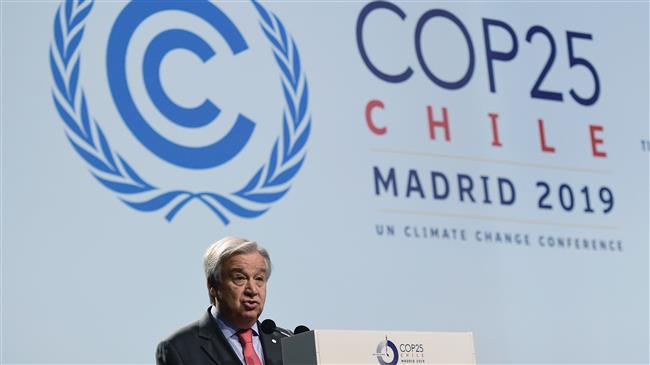
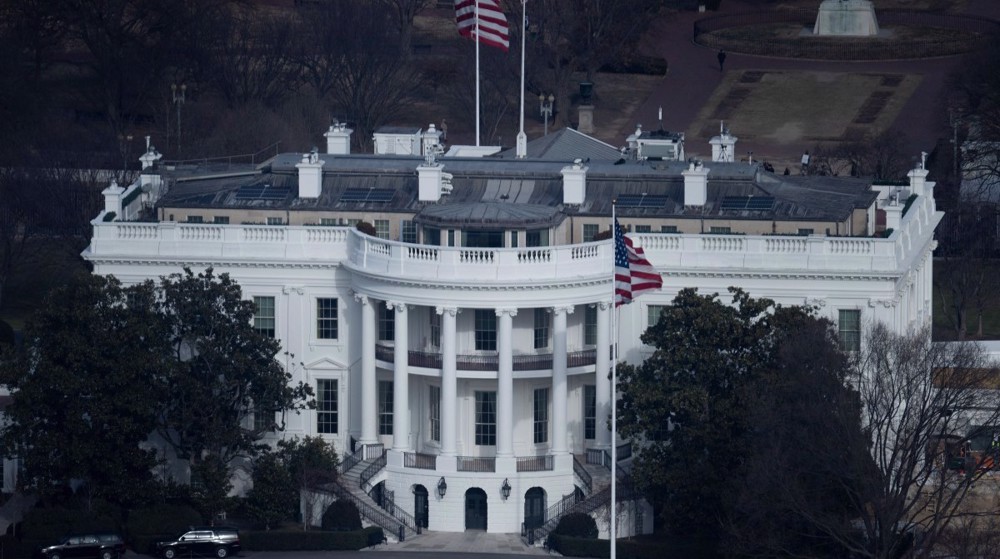

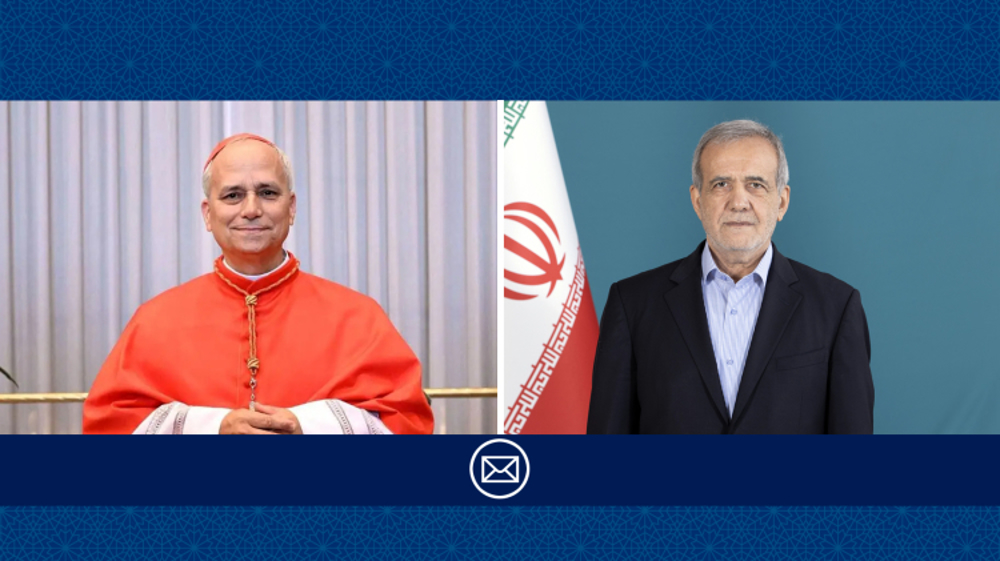




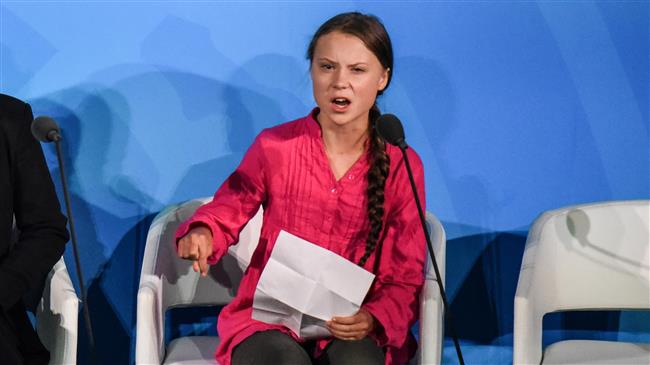
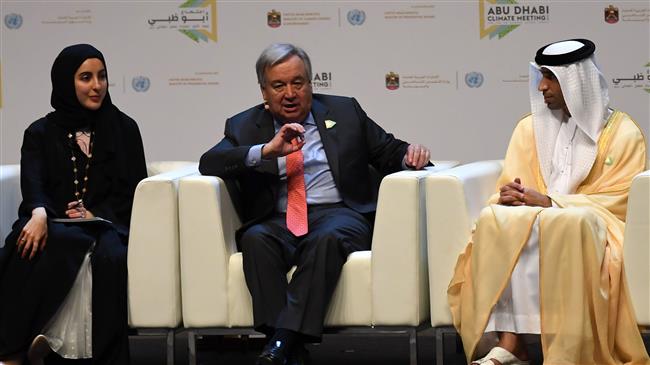



 This makes it easy to access the Press TV website
This makes it easy to access the Press TV website